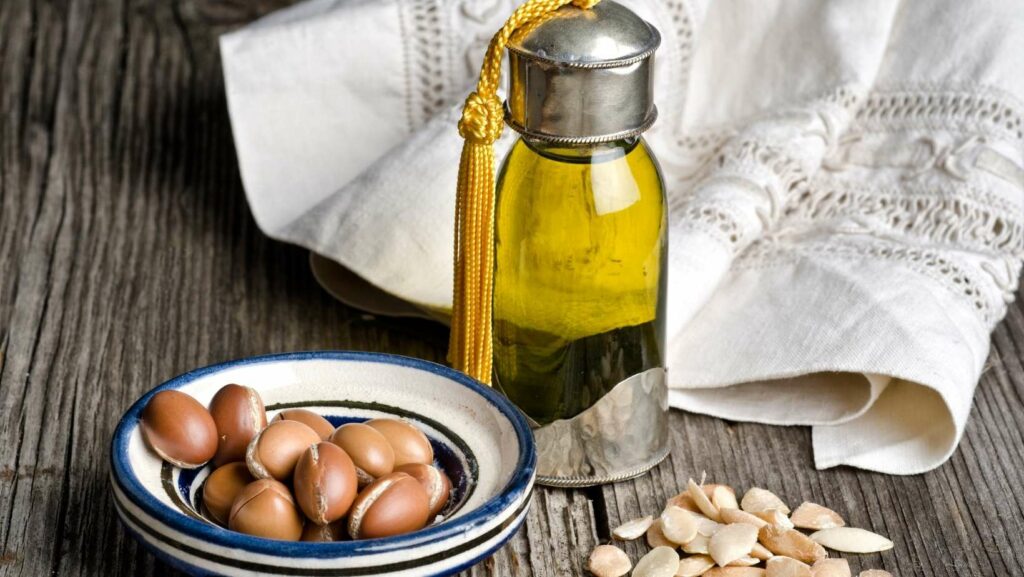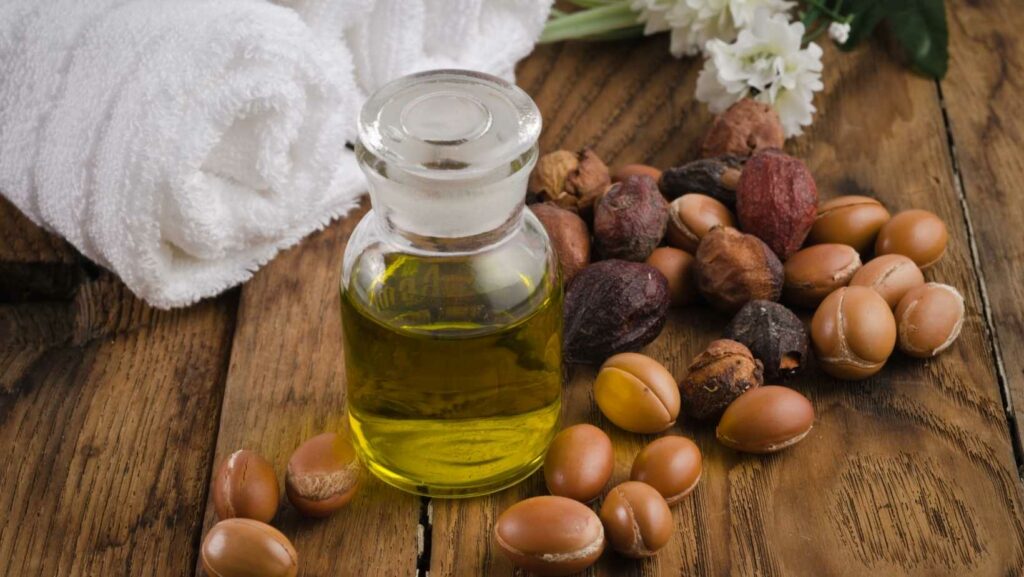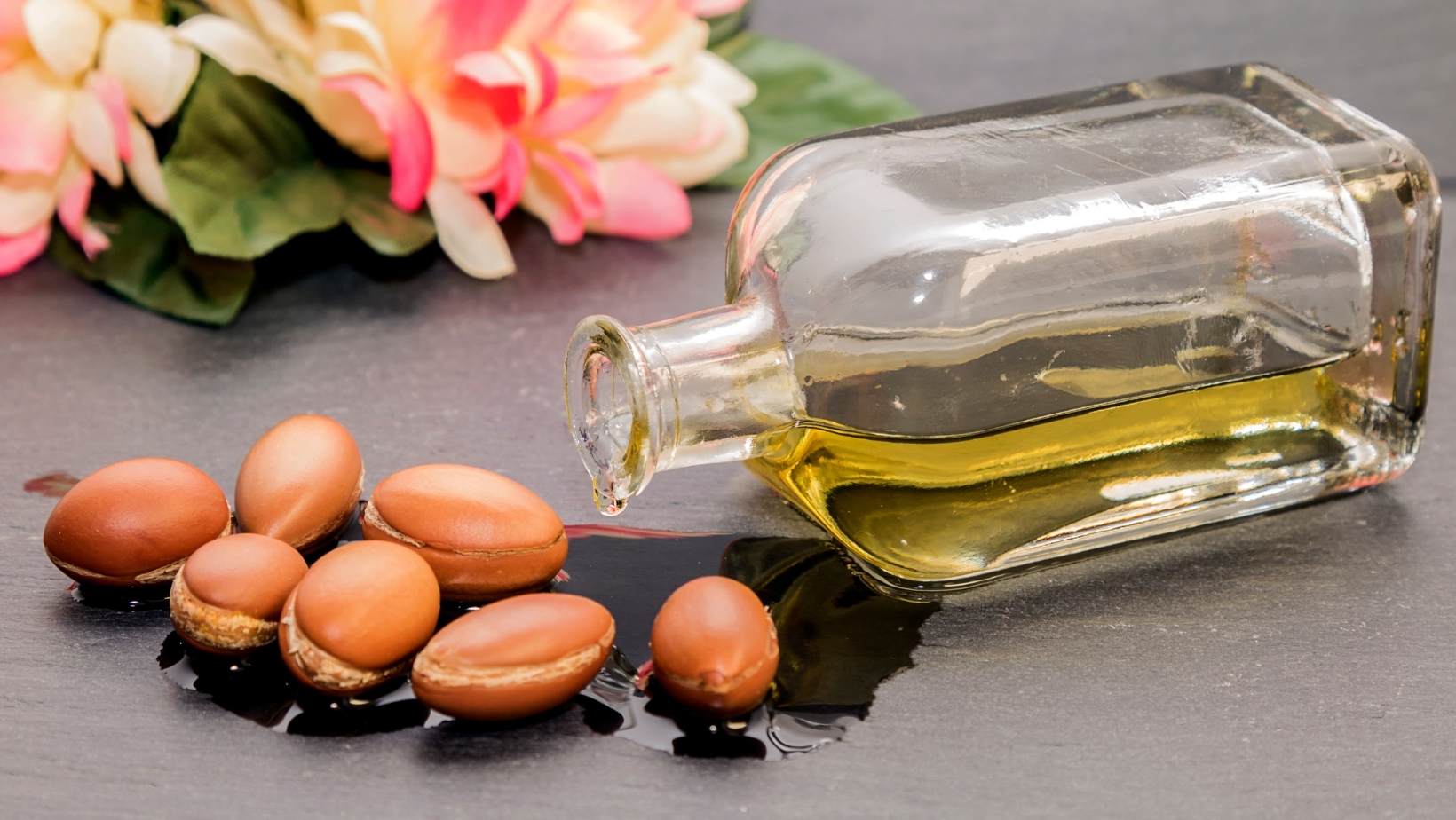Tons of face oils for skin are available out there and argan oil is one of them. You may have heard of Argan oil (Botanical name Argania Spinosa) for sure. It has numerous benefits for skin. Choosing the right oil is a bit confusing and the idea of greasiness and stickiness of oil stops us. But not all oils are the same. Yes, some oils aren’t perfect for all skin types. But Argan oil is! Argan oil has gained so much popularity these days. Due to its numerous benefits for hair and skin it’s come out to be boon for us. In this post, I would be telling you all about Argan oil for skin.
What is argan oil?
Argan oil is obtained from kernel grows in an argan tree, which is found in Morocco. It is directly taken as in pure form for topically on the skin and also in supplements form. The argan oil is mostly known for acne prone, dry and dull skin. It won’t leave your skin greasy because it contains non-comedogenic formula. It is the safest and beneficial natural oil.
Benefits of argan oil
Argan oil is considered to be the most beneficial oil for the face. Having vital numbers of advantages for skin brings this closer to people. So, the benefits of argan oil are given below:
● Moisturizes skin
Argan oil is loaded with moisturizing properties due to the wide presence of Vitamin E. That’s why it is mostly found in lotions, creams and moisturizers. It can be applied topically on the skin or as a daily supplement dose. Vitamin E improves water retention in the skin and it is a fat-soluble ingredient.

● Treats acne
Excess oil production results and hormonal changes results in acne. Hormonal changes affect the sebum production and this results in oiliness and acne. Argan oil has an anti-sebum formula which treats acne and promotes smoother and calmer skin.
Apply argan oil or moisturizer containing argan oil daily. It will reduce the sebum production and will show the results in a few weeks.
● Treats skin infections
Argan oil is used for many decades to treat skin infections and wounds. Argan oil has antibacterial and anti fungal properties. So, this can treat bacterial and fungal infections. Apply the argan oil on the affected area daily and this treats infections very well.
● Protects from sun damage
Argan oil has antioxidant properties which help to prevent the sun damage due to free radicals. This prevents sunburn and hyperpigmentation. In Morocco, women used this argan oil for so long to protect their skin from sun damage. You can apply the argan oil topically on skin or can take supplements.
● Reduces oiliness
Argan oil also reduces oiliness as it controls sebum production and your skin won’t feel greasy and sticky. Oily skin people can definitely use this. It has a non-comedogenic formula which helps to reduce the oil production and thereby breakouts. You can apply argan oil or argan oil based cream daily to reduce the breakouts and acne.
● Has anti-aging formula
Yes, surprisingly argan oil has anti-aging effects. Due to its high moisturizing properties it controls the aging signs. It results in elasticity of skin and reduces the aging effects. You can apply argan oil based products or take supplements on a daily basis.
● Heals wounds
Argan oil has antioxidants and this is a powerful dose to heal the wounds. The combination of argan oil and Vitamin E heals the wound faster and cuts too. You can take daily supplements or just apply argan oil on the affected area daily.
● Treats skin conditions
There are several skin conditions which can be treated with argan oil. Argan oil has antioxidant and anti-inflammatory properties that heal the skin conditions. These extraordinary properties reduce the signs of many skin conditions. Psoriasis and rosacea are best treated with argan oil. Apply it on the affected area in case of psoriasis and take oral supplements for rosacea.
Side effects
Generally, argan oil does not show any side effects but yet sometimes it shows mild effects. Minor side effects result in irritation and burning.
While applying topically on the skin, it may irritate the skin such as rashes, breakouts. Those who have tree nut allergy, it can be allergic. To avoid this, you should do a patch test in a small area and apply the argan oil in a small amount in the beginning to avoid irritation.
While taking supplements, it can cause digestion problems like indigestion, gas, nausea etc. Some people also see skin reactions like acne breakouts and irritation. Some serious problems are difficulty in sleeping, depression, excitement, and confusion. If you experience any of these side effects, stop using it.

How to use it?
Argan oil often uses a single ingredient in a product. But generally the most beneficial way to it is as a toner, moisturizer, serum and exfoliator.
- Serum – Apply argan oil with your serum and let it absorb until you apply the next product.
- Moisturizer – Take a few drops of argan oil and apply it to your face. After that apply moisturizer.
- Toner – Apply argan oil after cleaning your face. Take a cotton pad and drop a few drops of oil. Dap it on your skin
- Lip moisturizer – Take a few drops of argan oil and dap it on the lips.
Use it once or twice daily. To avoid any side effects and to get the best results, start using in small quantities in the beginning.
How to choose the best argan oil?
- Always looks for cold-pressed argan oil for both hair and skin.
- Avoid using artificial fragrance, chemicals based products.
- Argan oil is natural oil and it shouldn’t contain any artificial elements.
- Argan oil is expensive due to less presence of argan trees and its extraction method. Don’t fall for cheap one.
Best argan oil based products
- YBP Pure Argan Oil
- Organix Argan Oil of Morocco Oil
- Pura D’or Organic Moroccan Argan Oil
Well, argan oil has so many benefits and you should give it a try if you are suffering from dry, dull skin and you need hydration.
Image reference- canva PRO
